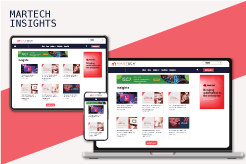Consumers still rely on email, but brands are just one bad subject line away from the spam folder.
Email remains a dominant communication channel, but businesses are struggling to keep consumer trust. A new survey from ZeroBounce found that 93% check their email daily – yet 80% mark messages as spam based solely on appearance.
For brands and marketers, this growing skepticism poses a major challenge: even well-intended emails may never be opened. Consumers are increasingly wary of spam and phishing attacks, and they’re quick to take action: 47% report an email as spam if they didn’t give explicit permission to receive it.
Marketing Technology Insights: ShopSight Launches AI-Powered Platform to Inspire the Future of Brand Engagement
At the same time, email remains a strong marketing channel: 41% of respondents say they check their inboxes specifically for brand discounts. To build engagement, companies need to focus on relevance and optimize their sending frequency. ZeroBounce’s 2025 Email Statistics Report shows that 46% of consumers open emails from brands that consistently send relevant messages, but many unsubscribe when companies send too often.
“Email is a powerhouse – both in the workplace and in marketing,” says ZeroBounce founder and CEO Liviu Tanase. “But our survey shows consumers are becoming more cautious about spam and phishing attacks. The majority mark emails as spam at the slightest sign of suspicious content. To land in the inbox , companies must send valuable emails at the right intervals, and ensure those emails look legitimate. Prioritizing trust and relevance will drive engagement and improve long-term email deliverability.”
Marketing Technology Insights: BigCommerce Merchants Get AI Boost as Vortex IQ Joins Elite
Keeping spam complaints at bay is critical for mass senders striving to land their emails in the inbox. Large email service providers can block or throttle senders who receive more than one complaint per 1,000 emails, a threshold that reinforces the need for proper sending practices and email list management.
Marketing Technology Insights: LineLeader Sets New Standard in Childcare Software With More Custom Reporting
Source – PR Newswire
For media inquiries, you can write to our MarTech Newsroom at sudipto@intentamplify.com



